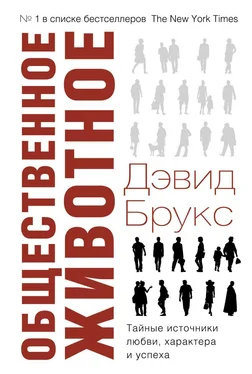Jean Twenge, Generation Me: Why Today's Young Americans Are More Confident, Assertive, Entitled — and More Miserable Than Ever Before (New York: Free Press, 2006), 69.
Wuthnow, 62.
Wuthnow, 32.
Michael Barone, «А Tale of Two Nations,» US Hews & World Report, May 4, 2003.
Elizabeth Kolbert, «Everybody Have Fun,» The New Yorker, March 22, 2010.
Elizabeth Kolbert, «Everybody Have Fun.»
Derek Bok, The Politics of Happiness: What Government Can Learn from the New Research on Well-Being (Princeton, NJ: Princeton University Press, 2010), 13.
Bok, 17-18.
David Blanchflower and Andrew Oswald, «Well-Being Over Time in Britain and the USA,» Journal of Public Economics 88 (July 2004): 1359-86.
Robert D. Putnam, Bowling Alone: The Collapse and Revival of American Community (New York: Simon & Schuster, 2000), 333.
David Halpern, The Hidden Wealth of Nations (Cambridge: Polity Press, 2010), 26.
Tara Parker-Pope, «What Аге Friends For? A Longer Life,» New York Times, April 21, 2009.
Bok, 28.
Halpern, 28-29.
Roy E. Baumeister, The Cultural Animal: Human Nature, Meaning, and Social Life (Oxford: Oxford University Press, 2005), 109.
Joan Raymond, «He’s Not as Smart as He Thinks,» Newsweek, January 23, 2008.
Joan Raymond, «He’s Not as Smart as He Thinks.»
Lionel Trilling, Sincerity and Authenticity (Cambridge, MA: University of Harvard Press, 1972), 5.
Helen Fisher, Why We Love: The Nature and Chemistry of Romantic Love (New York: Henry Holt & Co., 2004), 1.
Kaja Perina, «Love’s Loopy Logic,» Psychology Today, January 1, 2007.
Fisher, 53.
Ayala Malakh Pines, Falling in Love: Why We Choose the Lovers We-Choose (New York: Routledge, 2005), 154.
Fisher, 69.
Sadie F. Dingfelder, «More Than a Feeling,» Monitor on Psychology 38, no. 2 (February 2007): 40.
Daniel Goleman, Social Intelligence: The New Science of Human Relationships (New York: Bantam Dell, 2006), 192.
P. Read Montague, Peter Dayan, and Terrence J. Sejnowski, «A Framework for Mesencephalic Domaine Systems Based on Predictive Hebbian Learning,» Journal of Neuroscience 16, no. 5 (March 1, 1996): 1936-47.
Read Montague, Your Brain Is (Almost) Perfect: How We Make Decisions (New York: Plume, 2007), 117.
Brett W. Pelham, Matthew C. Mirenberg, and John T. Jones, «Why Susie Sells Seashells by the Seashore: Implicit Egotism and Major Life Decisions,» Journal of Personality and Social Psychology 82, no. 4 (2002): 469-87.
Bruce E. Wexler, Brain and Culture: Neurobiology, Ideology, and Social Change (Cambridge, MA; MIT Press, 2006), 143.
James Q. Wilson, The Moral Sense (New York: Free Press, 1997), 124.
Bruce D. Perry, Born For Love: Why Empathy Is Essential — and Endangered (New York: HarperCollins, 2010), 51.
Elaine Hatfield, Richard L. Rapson, and Yen-Chi L. Le, «Emotional Contagion and Empathy,» in The Social Neuroscience of Empathy, eds. Jean Decety and William John Ickes (Cambridge, MA: MIT Press, 2009), 21.
Marco Iacoboni, Mirroring People: The New Science of How We Connect with Others (New York: Farrar, Straus & Giroux, 2008), 4.
Andrew Newburg and Mark Robert Waldman, Why We Believe What We Believe: Uncovering Our Biological Need for Meaning Spirituality, and Truth (New York: Free Press, 2006), 143—44.
Thomas Lewis, Fari Amini, and Richard Lannon, A General Theory of Love (New York: Vintage, 2001), 80.
Jonathan Haidt, The Happiness Hypothesis: Finding Modem Truth in Ancient Wisdom (New-York: Basic Books, 2006), 237.
Allan Bloom, Love and Friendship (New York: Simon & Schuster, 1993), 19.
Don Peck, «How a New Jobless Era Will Transform America,» The Atlantic, March 2010.
Robert H. Frank, The Economic Naturalist: In Search of Explanations for Everyday Enigmas (New York: Basic Books, 2007), 129.
Andrew Newburg and Mark Robert Waldman, Why We Believe What We Believe: Uncovering Our Biological Need for Meaning Spirituality, and Truth (New York: Free Press, 2006), 73.
Richard H. Thaler and Cass R. Sunstein, Nudge: Improving Decisions About Health, Wealth, and Happiness (Ann Arbor, MI: Caravan Books, 2008), 32.
Keith E. Stanovich, What Intelligence Tests Miss: The Psychology of Rational Thought (New Haven, CT: Yale University Press, 2009), 109.
Daniel Gilbert, Stumbling on Happiness (New York: Vintage, 2007), 18.
Joseph T. Hallinan, Why We Make Mistakes: How We Look Without Seeing, Forget Things in Seconds, and Are All Pretty Sure We Are Way Above Average (New York: Broadway Books, 2009), 170.
David G. Myers, Intuition: Its Powers and Perils (New Haven, CT: Yale University Press, 2004), 83.
Hallinan, 167.
Myers, 159.
Stephen J. Dubner, «This Is Your Brain on Prosperity,» New York Times, January 9, 2009.
Gilbert, 180.
Erica Goode, «Among the Inept, Researchers Discover, Ignorance Is Bliss,» New York Times, January 18, 2000.
Jerry Z. Muller, «Our Epistemological Depression,» The American, February 29, 2009.
John Maynard Keynes, The General Theory of Employment, Interest and Money (New York: Classic Books America, 2009), 331 (рус. изд. — Джон Мейнард Кейнс. Общая теория занятости, процента и денег. М.: Гелиос АРВ, 2012).
Guy Claxton, The Wayward Mind: An Intimate History of the Unconscious (New York: Little, Brown Book Group, 2006).
Lionel Trilling, The Liberal Imagination: Essays on Literature and Society (New York: New York Review of Books, 2008), IX-XX.
Читать дальше












